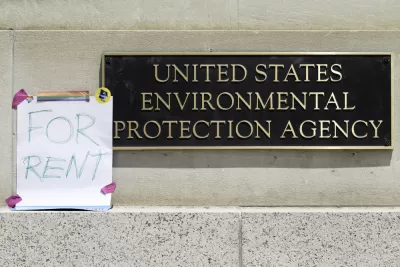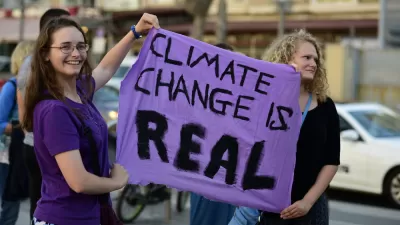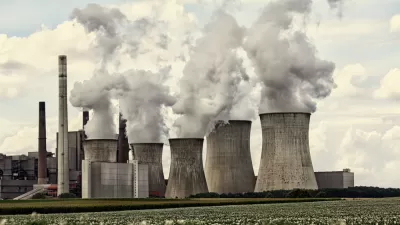An even set in motion years ago by the Trump administration came to fruition on November 4 while most Americans were paying attention to the election.

Brady Dennis, Juliet Eilperin, and Dino Grandoni report that the United States officially "became the first and only nation to withdraw from the Paris climate accord on Wednesday, even as the outcome of the presidential race remained unknown."
With the result of the presidential election still undetermined, the direction of the United States as a global partner in the effort to reduce carbon emissions before the worst projections for climate change and sea-level rise are impossible to avoid hangs in the balance. A Trump victory would mean years of stagnation on climate action in the United States.
Here's what the climate status quo looks like in the United States, according to the article:
The United States could miss its own Paris accord commitment to lower carbon emissions 26 percent to 28 percent below 2005 levels by 2025. According to an analysis by the Rhodium Group, the country is on track to cut its emissions between 20 and 27 percent, depending on how quickly the economy recovers from the pandemic. But it would need to cut emissions by 43 percent over the next decade to be on track to reach net zero emissions by 2050 — a goal that the European Union, Japan, South Korea and other nations have set in a push to slow the world’s warming.
The two candidates for the presidency would "undoubtedly lead the country in opposite directions on climate policy.
"But even as the electoral map appeared to tilt in Biden’s favor Wednesday, signs pointed toward the GOP retaining control of the Senate," according to the article. "That outcome would dim the prospects that a Biden administration could shepherd a comprehensive climate bill through Congress."
FULL STORY: As U.S. leaves Paris accord, climate policy hangs on election outcome

Alabama: Trump Terminates Settlements for Black Communities Harmed By Raw Sewage
Trump deemed the landmark civil rights agreement “illegal DEI and environmental justice policy.”

Study: Maui’s Plan to Convert Vacation Rentals to Long-Term Housing Could Cause Nearly $1 Billion Economic Loss
The plan would reduce visitor accommodation by 25% resulting in 1,900 jobs lost.

Planetizen Federal Action Tracker
A weekly monitor of how Trump’s orders and actions are impacting planners and planning in America.

Wind Energy on the Rise Despite Federal Policy Reversal
The Trump administration is revoking federal support for renewable energy, but demand for new projects continues unabated.

Passengers Flock to Caltrain After Electrification
The new electric trains are running faster and more reliably, leading to strong ridership growth on the Bay Area rail system.

Texas Churches Rally Behind ‘Yes in God’s Back Yard’ Legislation
Religious leaders want the state to reduce zoning regulations to streamline leasing church-owned land to housing developers.
Urban Design for Planners 1: Software Tools
This six-course series explores essential urban design concepts using open source software and equips planners with the tools they need to participate fully in the urban design process.
Planning for Universal Design
Learn the tools for implementing Universal Design in planning regulations.
Caltrans
Smith Gee Studio
Institute for Housing and Urban Development Studies (IHS)
City of Grandview
Harvard GSD Executive Education
Toledo-Lucas County Plan Commissions
Salt Lake City
NYU Wagner Graduate School of Public Service





























